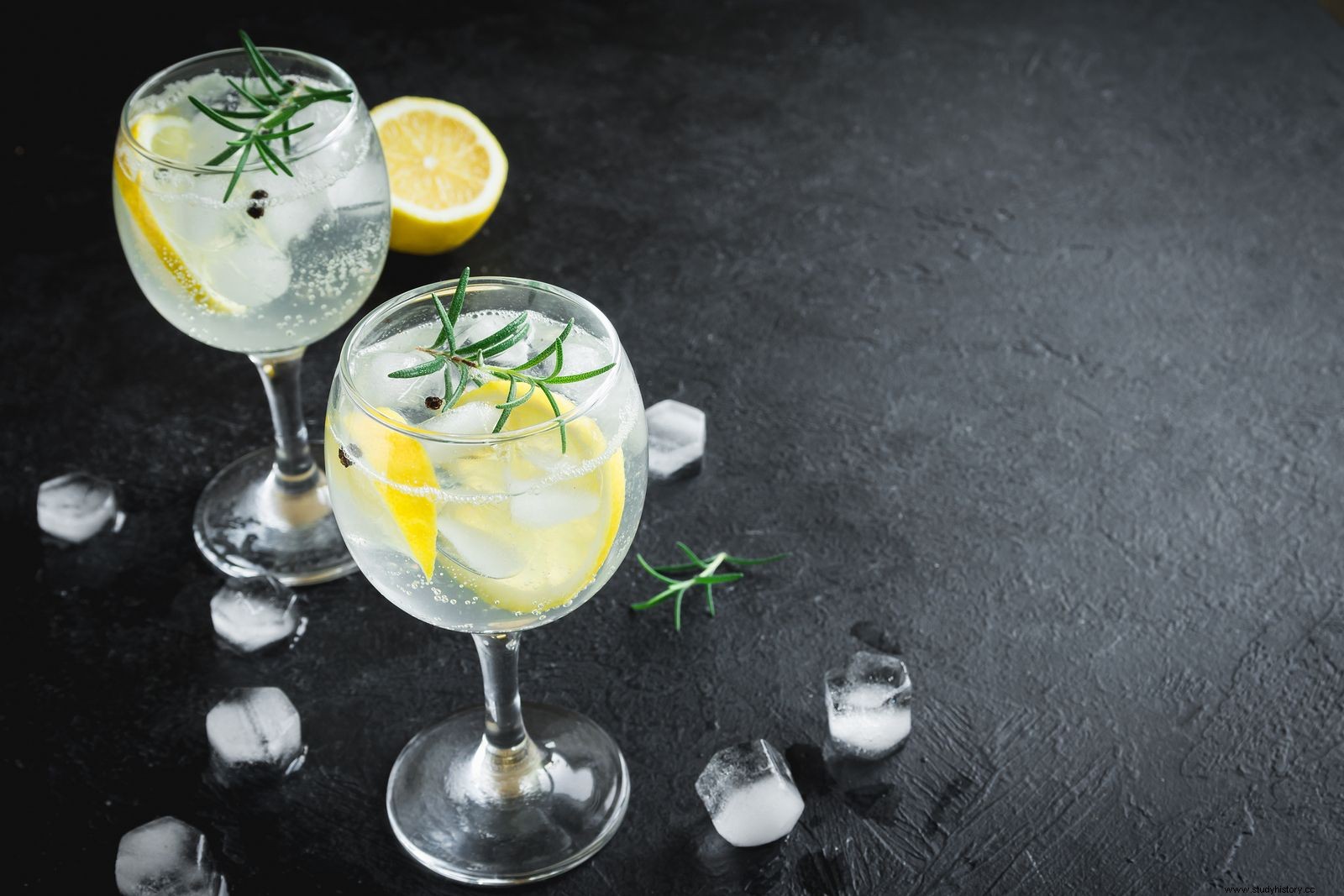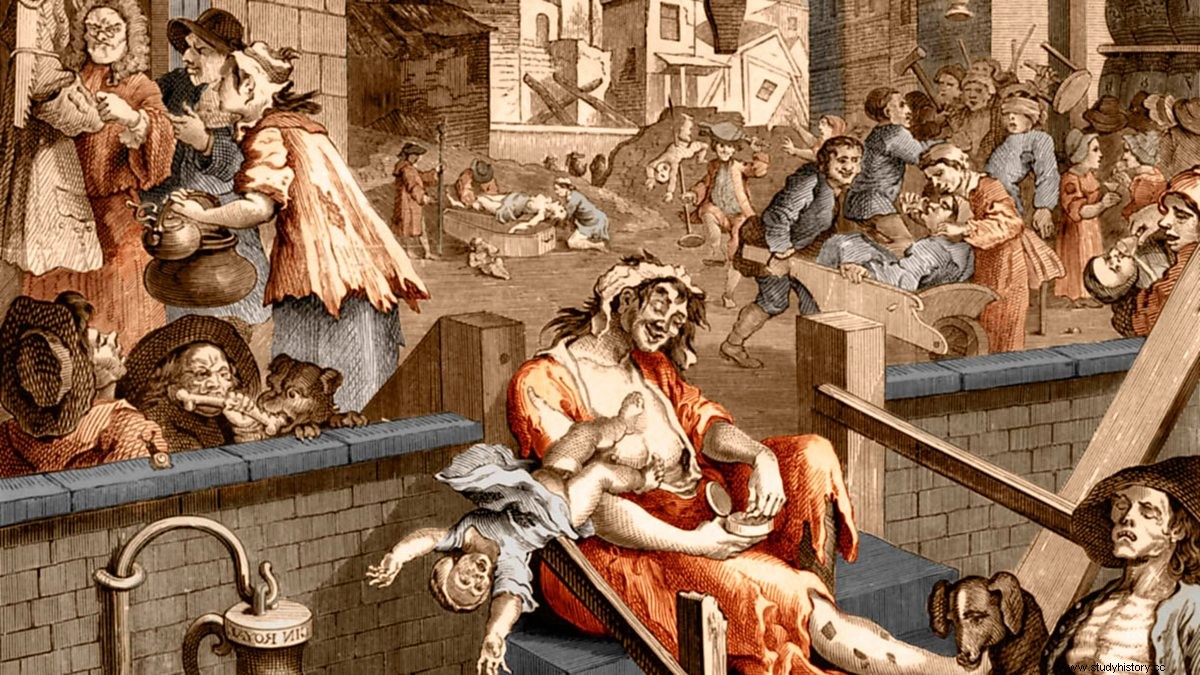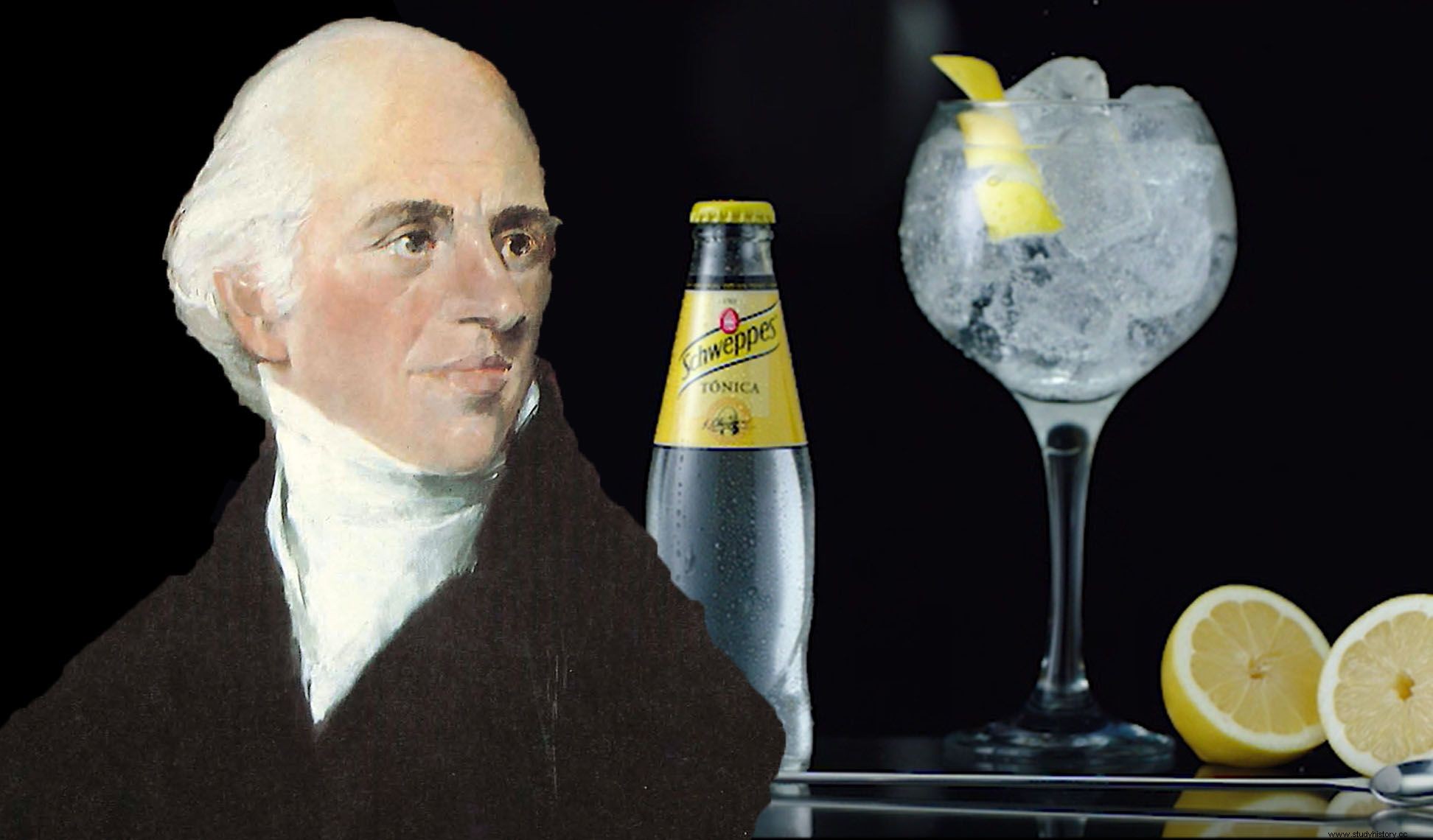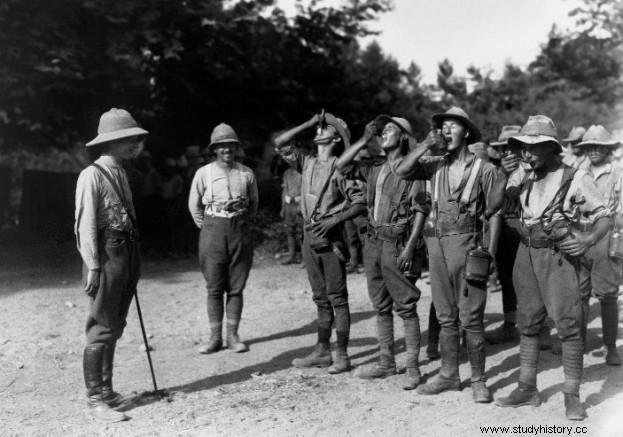The gin and tonic has saved more British lives than all the doctors in the Empire.
Winston Churchill even said, although the truth is that if all the phrases attributed to Paulo Coelho and Winston Churchill had been pronounced by them, I don't think they would have had time for anything else. Whether I said it or not, what is clear to me is that this drink had no cucumber slices, no strawberries, no flowers, no cashews, no herbs… or anything like that. It would be something as simple, as its name suggests, like mixing gin and tonic, period. I leave the ice and the slice of lime or lemon as optional, but nothing else. And returning to what concerns us, this is the history of the gin and tonic.

In the mid-17th century, the physician Franciscus Sylvius de la Boe , German by birth and Dutch by adoption, was looking for a medicinal concoction to cleanse impurities from the body and relieve stomach and kidney pain. Therefore, knowing the diuretic properties of juniper, he decided to distill alcohol from cereals with juniper berries, and the result was a concoction that he called " jenever ”, gin for us. Some say that the name comes from a deformation of genévrier (juniper in French) and others from its scientific name, juniperus . Whatever the origin of its name, the fact is that it became so popular among the Dutch that, like many other medicinal preparations, it made the leap from the pharmacy to the tavern. As it was a new product, easy to prepare and taxed with less tax than beer and other usual spirits, it spread throughout Europe, entering England through the front door… and creating a problem. Being so cheap, the lower classes consumed it as if there were no tomorrow. The gin, gin for the English, it made their miserable lives more bearable, to the point of creating a social phenomenon in the 18th century called Gin Craze (gin madness), characterized by gin binge drinking and associated with vice and social decadence. Said the chorus of a song from this time...
Guinevere, accursed demon, full of fury,
Which makes the human race its prey.
Which enters in a deadly draft,
And our lives fly away.

The monarchy, as if it were a war against the latest designer drug that spreads through the streets, had to take action on the matter and launched a crusade against gin, via restrictions on consumption. We will leave the gin to rest here and we will go with the other ingredient of our cocktail, the tonic.

The German businessman Johann Jacob Schweppe -yes, yes, the one with the Schweppes tonic He – he devoted himself to researching the effects of carbonated mineral water with carbon dioxide, and in 1792 he launched carbonated drinks to which sugar and various fruits were added. Precisely in 1858, when after putting down the rebellion of the sepoys against the British East India Company, which exercised de facto power in India, and the Crown came to directly govern the British Raj, the entrepreneur Erasmus Bond he invented a new combination that would be ideal for soldiers posted to India:tonic water, carbonated water to which he added quinine. In this way, the quinine needed as a therapeutic dose to alleviate malaria became easier and more digestible. In 1870 Schweppe would do the same and create the “Indian Quinine Tonic ”, a medicinal drink. Still, the sugar in the carbonated water couldn't handle the bitterness of the quinine. And what had to happen happened, that at some point a soldier or a colonial official decided to combine the protective tonic water with a shot of gin. It was already known that cheap alcohol was the most effective ingredient to combat cowardice, but here he showed that it was also effective in mitigating bitterness. The gin and tonic became the ideal companion to endure the very long war campaigns in the British colonies. Moreover, when the soldiers returned to the United Kingdom and asked for the drink in the taverns, they were identified as the Heroes of the East, a fact that encouraged their consumption. Such was its success, that in the United Kingdom on October 19 the Gin Tonic Day is celebrated. . Why this day is celebrated... no idea.

By the way, the tonic that is manufactured today does not work as a remedy for malaria, since it has a tenth part of the necessary dose of quinine. And, beware!!!, don't overdo it either, which, in excessive doses, can cause an intoxication called cinchonism. Do you know why? The answer on Wednesday.
